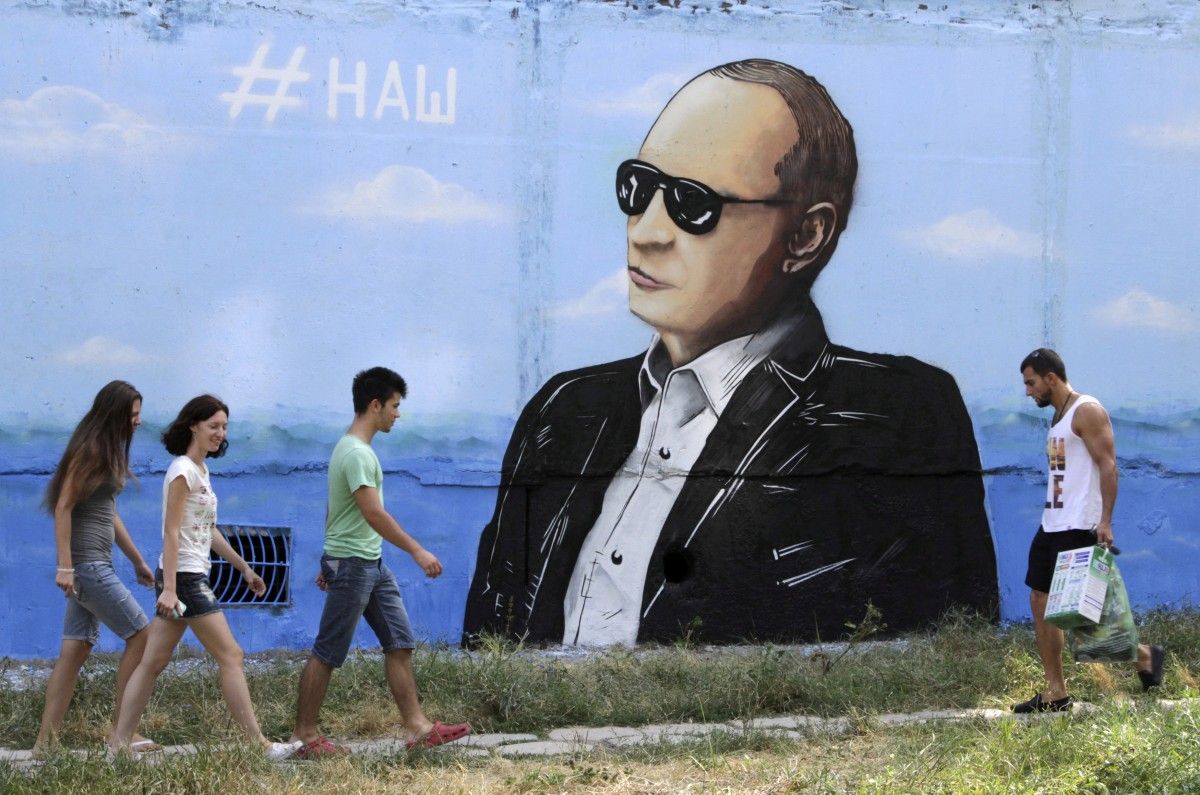
"On March 1, 2014, together with Deputy Chief of the Main Operations Directorate, General Viktor Nazarov, we proposed an option to respond to the developments in Crimea. Then I submitted for the Chief of the General Staff (Mykhailo Kutsyn) a number of orders regarding our actions," he told UP.
The plan was to conduct an amphibious operation: landing on the peninsula and seizing airfields across Crimea, strengthening our groupings there and carrying out certain actions that would prevent the Russian military from advancing in the relevant areas.
We planned to capture the narrow isthmus between Crimea and the Kerch peninsula with the use of the 95th Brigade units.
It was supposed to strengthen these groupings with the 1st Marine Battalion, which was stationed in Feodosia, and to deploy the 501st Battalion, which was stationed in Kerch. The units of the 95th Separate Airborne Assault Brigade had to be transferred by air to the Kirovsky airfield.
"We also deploy military hardware. The hardware of the 95th Brigade had to be deployed through the Arabat Split and get to the Feodosia outskirts," he said.
According to Muzhenko, the Russians were building up their forces from Sevastopol to Kerch. By that time, part of the units of our 36th coastal defense brigade had already reached the Angarskyi training range near Simferopol. We planned to transfer two battalions there: a tank mechanized battalion was to block the direction along the Sevastopol-Simferopol motorway, while a mountain infantry battalion was to block the Yalta-Simferopol highway on the Angarskyi Pass.
"Thus, we would have completely blocked access of Russian units to the steppe part of Crimea, It was a chance, we thought. Because all military facilities on the south coast were already blocked by the Russian forces," he said.
Read alsoLithuania stages drills against "little green men"He recalled that on the same day, in the evening of March 1, a meeting of the National Security and Defense Council was held, which was attended by Chief of the General Staff and Acting Minister of Defense.
"And we were preparing the implementation of our plan at the premises of the Main Operations Department. The Commander of the Air Force had already received an appropriate order to provide air transfers and air force support," he said.
According to him, Chief of the General Staff and Acting Minister of Defense returned from the meeting late in the evening.
"The then first deputy chief of the General Staff, Colonel-General Vorobiov took me and a few more generals into the waiting room near his office and said: "Everyone halt everything!" I said: "How can it be 'halted' if our aircraft are in the air heading to the airfields to pick up the assault forces?"
He asked: "On what orders are these actions being carried out?" I said: "Based on the order I had the Chief of the General Staff sign," Muzhenko said.
"I went to the chief of the General Staff and asked: “The operation has begun, the planes are in the air, the assault forces are at the airfields. What's next? "He asked: "What's going on?" I answered: "What do you mean?! The relevant actions are underway based on your orders." He said: "I did not sign such orders..." Muzhenko said.
"These orders signed by the Chief of the General Staff, General Mykhailo Kutsyn, are still out there – they are stored in a “to secret” folder... Why did it happen? I have no idea. Perhaps, the corresponding decision was taken at a meeting of the National Security and Defense Council. If there is no political decision, the military don’t take such decisions," he said.
"If we fulfilled that what we had planned, we had a chance to retain control over the steppe part of Crimea. This would not have made it possible to hold a "referendum," as they call it. But it's very difficult to predict how the events would have developed further... But there was a chance... The next day, Russia deployed to Crimea some eight or nine Il-76 military cargo aircraft and up to 12 helicopters," Muzhenko added.
Read alsoRussian historian names "soft" and "hard" ways to end war in DonbasIn turn, the then head of the Verkhovna Rada of Ukraine, Acting President Oleksandr Turchynov responded to the question whether the proposal for such an operation had been voiced and why it had been canceled: "I did not receive from the General Staff any separate proposals on the steppe and mountainous parts of Crimea, or any other operations on the peninsula. All official proposals of military leadership on the use of troops go through a classified paper flow, so any statements can always be verified."

